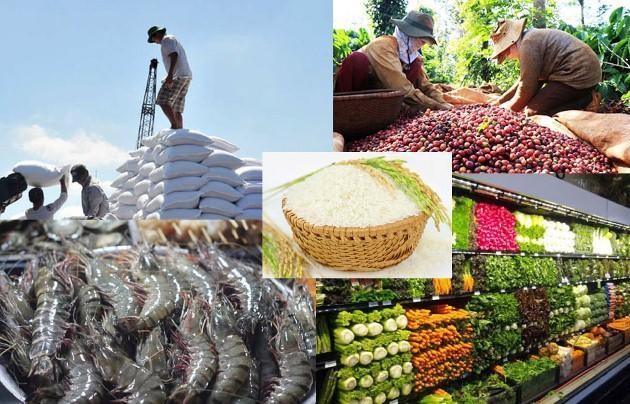Agricultures, Foods, News & Event
Open market
GD&T – Opening up to difficult markets such as Japan and New Zealand helps strengthen Vietnam’s export reputation.

This year is considered to be the most successful year ever in terms of opening up the agricultural product market when the authorities “regularize the export” of nearly a dozen items. Specifically, passion fruit, durian, banana, sweet potato are allowed to be officially exported to China; the label is entering the Japanese market; pomelos, lemons prepare to “go” to New Zealand…
Opening up difficult markets such as Japan and New Zealand helps strengthen Vietnam’s export reputation. Besides, China is always a large and potential market for our country’s exports, especially in the field of agricultural products. Bringing Vietnamese agricultural products to China through official channels is a fundamental solution to consuming agricultural products and clearing the congestion at the northern border gate for a long time.
For farmers, official export will create motivation for them to produce professionally and methodically on a larger scale. When exporting through official channels, farmers are forced to improve their skills and knowledge to ensure control of harmful organisms without affecting the environment.
At the same time, technical processes must be applied to create uniform products, ensuring quality. As a result, product quality and prices will increase, helping to improve farmers’ incomes and improve the competitiveness of agricultural products. Typically, durian, after being officially exported to China, the price in the domestic market has increased 3 times compared to before.
However, it is of concern that businesses and farmers can take advantage of the opportunity to open the market or not when the requirements of importing countries are very comprehensive and detailed.
For example, sweet potatoes and bananas that want to enter China through official channels must apply good agricultural practices (GAP); to investigate and monitor the subjects of plant quarantine that this country is interested in; Effective control measures must be in place to minimize the level of pest infestation.
Or fresh longan exported to Japan must be subjected to phytosanitary treatment by cold treatment (below 1.3 degrees Celsius) for 13 days at approved processing facilities. Export shipments must, of course, be accompanied by a phytosanitary certificate and ensure that there are no plant quarantine objects.
With lemons and pomelos exported to New Zealand, the plantation must be managed by the pest management of the subjects of plant quarantine that this country is interested in and be given a code and a packing facility. The product must be irradiated with a phytosanitary certificate.
All official export shipments that do not meet the requirements when randomly checked will stop at the border gate. The planting area codes that do not meet the requirements will be withdrawn and canceled.
While the requirements of your side are getting higher and higher, the level of control is increasingly tight, but changing the thinking of agricultural production in our country cannot be overnight. This is really worrying! In fact, there are currently 11 types of Vietnamese fruit that are officially exported to China, including durian, passion fruit, dragon fruit, watermelon, litchi, longan, banana, mango, jackfruit, rambutan and mangosteen.
However, official export output is still very modest. For example, 94% of Vietnam’s mango exports are sold to China, but less than 1% of that goes through official channels.
Therefore, opening the market is just the beginning! The workload of the two branches of agriculture and industry and trade then is huge if you want to take advantage of the opportunity to “regularize agricultural exports”!
Source: https://giaoducthoidai.vn/mo-cua-thi-truong-roi-sao-post617808.html
